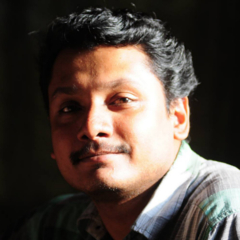Dr Valiathan’s ‘Sri Chitra model’ changed India’s medical sector forever

Mail This Article
Thiruvananthapuram: The contributions of Dr M S Valiathan to society as well as the health sector are immense. For instance, it was a medical team led by him that wiped out ‘endomyocardial fibrosis’ in Kerala, where this heart disease was common in the past and claimed numerous lives. Dr Valiathan who passed away on July 17 was also instrumental in developing the Sri Chitra Tirunal Institute for Medical Sciences and Technology (SCTIMST) in Thiruvananthapuram into a leading medical facility in India. Moreover, with SCTIMST developing world-class heart valves under Dr Valiathan, doctors in Kerala could overcome all hurdles in the treatment of heart diseases in the state.
Dr Valiathan was more interested in developing medical technologies than practising medical science, says Dr Asha Kishore, a former director of SCTIMST. He also studied Ayurveda after retirement from SCTIMST and founded a new branch of science named Ayurveda Biology, says Dr V Raman Kutty, a leading health expert.
A new model
When Dr Valiathan took over the reins of SCTIMST, Kerala did not have an independent hospital under the government. He developed SCTIMST into an autonomous research institute which is not governed by the medical college or state health department.
“Those days, patients visited hospitals which had doctors with good practice. But under Dr Valiathan, patients came to Sri Chitra due to the institution’s reputation,” says Dr Ramankutty, who was the head of Achutha Menon Centre under SCTIMST.
“Dr Valiathan ensured good emoluments for doctors at Sri Chitra and they could devote their entire time to patients at the hospital, without doing private practice. It was a new idea at that time. Even now, such hospitals are rare,” says Dr Ramankutty.
Dr Valiathan took over as chief of Sri Chitra following an invitation from the then Chief Minister of Kerala, C Achutha Menon. “When he became the director, SCTIMST had only a few small buildings and minimum staff. It was his foresight that led the institute to its present heights,” adds Dr Raman Kutty.
Dr Asha says that Dr Valiathan regularly visited Sri Chitra even after retirement. “He was the chairman of the research committee of the biomedical technology department at the institute and regularly attended the meetings held every three months. Dr Valiathan took the initiative to make top scientists members of the research committee. He also opened the new campus of Sri Chitra at Poojappura,” says Dr Asha.
Promoting medical technology
Dr Valiathan, who was honoured with the title of ‘National Professor’, was particular about developing indigenous medical technologies along with providing the best healthcare to people. His efforts made Sri Chitra a top research institution and it began manufacturing artificial valves and blood bags when he was the director. The technologies involved in their manufacture were imported before Sri Chitra developed its own methods. Dr Valiathan took the stand that the technologies should be developed in India as the country possessed the scientists needed for the task. “Sri Chitra’s heart valves are the best in the world. Apart from valves, the institute currently produces stents for the heart and brain, biological heart valves and other devices,” says Dr Asha.

“India lacked a medical industrial sector. It was Dr Valiathan who founded it. SCTIMST began research on the valve in 1976 and developed it by the late 1980s. Sri Chitra not only developed the valve but also created a model to market it, for which the cooperation of the private sector was obtained. Sri Chitra also developed blood bags jointly with private companies. In the process of manufacturing these devices which were not available in India, Dr Valiathan displayed Kerala’s excellence before the whole world,” says Dr Raman Kutty.
Learning Sanskrit, Ayurveda
Regarding Dr Valiathan’s contributions to research, Dr Raman Kutty recalls his role in containing endomyocardial fibrosis. “The number of patients suffering from this heart disease was unusually high in Kerala. It was not seen in other Indian states but was reported from Uganda and Brazil. The cause of the disease is still unknown and Dr Valiathan and his team conducted research into it. They suggested some theories based on their findings which were noticed by the scientific community. The disease is not reported from Kerala these days,” he says.
Another contribution of Dr Valiathan is proving that a busy doctor can also engage in meaningful research. This research model that he implemented in Sri Chitra was later emulated by the Regional Cancer Centre (RCC) in Thiruvananthapuram and other hospitals. “Now, a majority of research papers in the medical sector in Kerala originate from SCTIMST and RCC,” points out Dr Raman Kutty.

After his retirement from SCTIMST, Dr Valiathan learnt Sanskrit from Ayurveda acharya Raghava Perumal and reviewed the Ayurvedic texts Charaka Samhita and Ashtanga Hridayam to publish essays on them. He also did not stay in Kerala after retirement, shifting to Manipal in Karnataka when a new university was established there. In 1994, Dr Valiathan became the Vice-Chancellor of Manipal University and continued there as he liked the place. On retirement from Manipal, the central government honoured Dr Valiathan with the rare designation of National Professor.
Ayurveda Biology, an integrated science of Ayurveda and modern medicine, was established by Dr Valiathan. Even after retirement, he implemented many similar innovative concepts and engaged in medical research and writing in Manipal.


